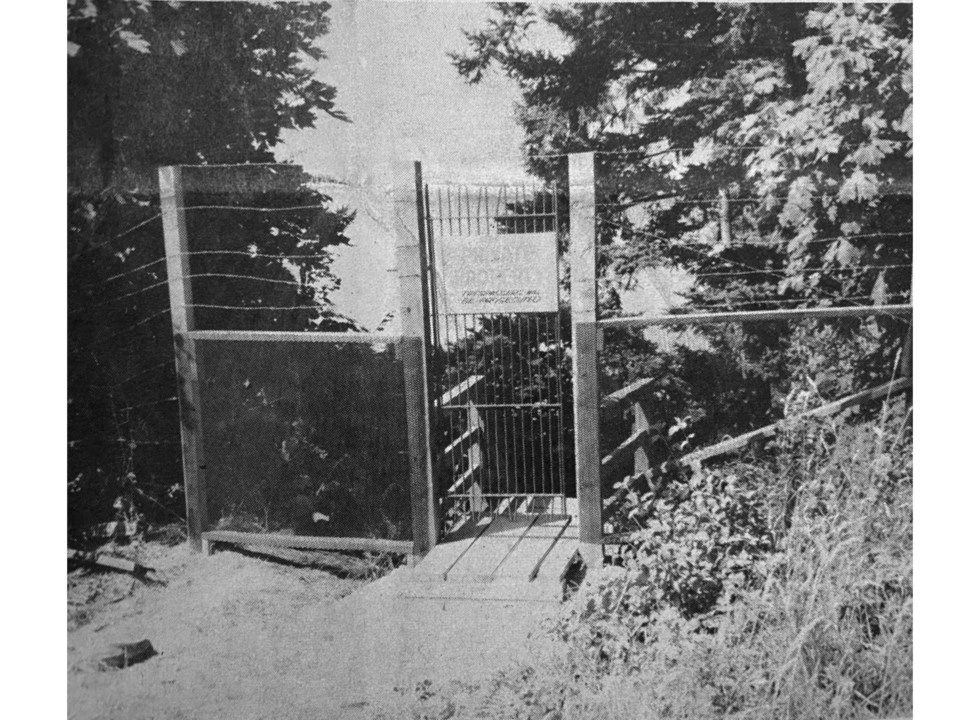Let’s head back to the summer of 1967 when South Delta residents were angered to see access to Tsawwassen Beach blocked by private property owners.
The steps at Tsawwassen Heights, long used by residents to get to the beach below, were closed. The steps were privately owned by a group of homeowners.
Irate residents complained to municipal hall to enforce a federal law that public access be available to any sheet of water.
The steps had been referred to as the McRae Steps.
Delta Reeve Clarence Taylor at the time said the steps were always privately owned and used by the courtesy of the owners.
Taylor noted the only other access was “straight down the side of the bluff, and only mountain goats can use it.”
In an interview with the Optimist, the owners cited vandalism as the reason for blocking beach access.
The access was purchased by residents in 1958, forming Tsawwassen Beach Access Ltd. The homeowners were shareholders and were responsible for the maintenance and upkeep of the steps.
The board of directors said the steps in Tsawwassen Heights at “no time were a public access or open to the public.”
Irate residents wanted to know why the municipality didn’t purchase the access for public use, instead of allowing a private group to snap it up.
An article in the Optimist noted council’s response was that “all the land was privately owned and it would cost a mint to buy it, and them another large sum of money to make access usable for the public.”
The controversy would linger for decades until 2004, when Delta approved the construction of the set of stairs leading from Fred Gingell Park on English Bluff Road to Tsawwassen Beach below.
An association of beach access advocates complained that the city was in violation of provincial legislation by not providing a public throughway to the water.
They said the western edge of Tsawwassen over years had been allowed to develop without providing pathways from the top of the bluff, leaving only the few homeowners private access to the public beach in the area.
Threatened with a lawsuit, the city admitted it never had the authority to waive a statute under the Provincial Land Act requiring access to the water and never got a waiver from the minister of highways.
Council eventually agreed to secure an occupation lease with B.C. Hydro for the right-of-way and spending $400,000 on stairway plan.
About half the cost was to construct the stairs and the use remainder to protect the hydro lines.



